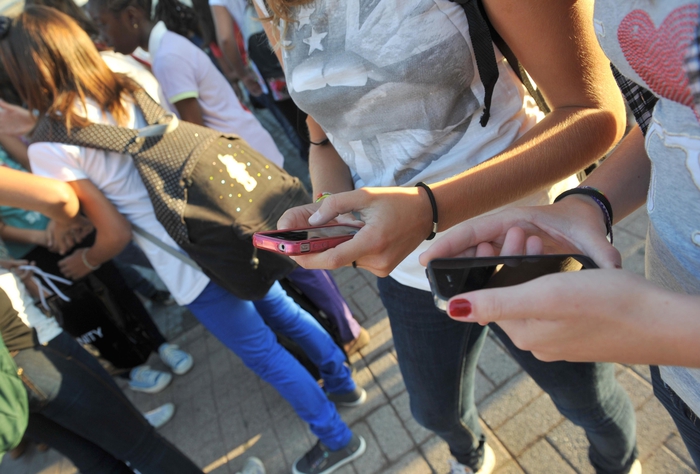27% are anxious or agitated without using social media, while 22% would even feel lost.
But more than 70% feel a 'strong fear' that the data they share online daily, such as updates on social channels, web browsing and traces of internet and smartphone usage data, will be 'stolen' i.e. used without consent.
These are some of the data from the report "Between reality and the Metaverse. Teenagers and parents in the digital world" produced by Telefono Azzurro in collaboration with Doxa Kids, conducted on a sample of 804 parents and 815 young people aged between 12 and 18.
The document was presented in Milan on the occasion of the forthcoming Safer Internet Day, the world day dedicated to the conscious and responsible use of the Internet.
Overall, the report records an increase in concerns, shared by parents and adolescents, about the negative effects that can arise from excessive exposure to digital screens of very young people, 50% of whom are on social networks and chat 2-3 hours a day.
A growing figure compared to 2018 when they were 43%.
As many as 14% of those interviewed spend four to six hours a day on social media and chatting, and 3% are always connected.
Despite the daily use of devices, young users are not always fully aware of how to avoid dangers, monitor them or report them.
Nearly one in two young people have come across inappropriate content online and 25% were upset and impressed.
For boys, the "most probable" risk they run online is being contacted by adult strangers (65% of cases, a percentage that rises to 70% if only girls and the youngest, aged 12 to 14 years).
This is followed by bullying (57%), oversharing of personal data (54%), viewing violent (53%) or sexually explicit content (45%), sending content you might regret (36%), excessive spending (19%), gambling (14%).
Also according to parents, for 75%, the greatest danger on the web is that of being contacted by adult strangers.
A figure defined by Telefono Azzurro as "interesting" emerges on age verification by social networks, apps and other Internet sites: for adolescents it is on average 15 years, for parents a year more, 16. In both cases this is a higher discrimination than that identified by Italy aged 14 following the European legislation for consent to data processing.
Age verification systems, and therefore the need to use them for a longer period, are very useful for 70% of the adolescents interviewed in order not to find themselves in risky situations,
for 65% to ensure that they do not take actions without thinking about the possible consequences and for 61% to prevent them from seeing inappropriate content.
"Kids realize, especially when they start to get older, that this age verification system is important. However, it is also true that age verification formally exists, but in essence, kids know that they can easily pass any type of blockade", said the president of Telefono Azzurro, Ernesto Caffo, at the presentation of the report.
"This one is a battle that can be faced and overcome - he underlined -, technologies today allow us to find new answers".
It is necessary "to insist on this path" and to discuss it "even with colleagues who follow European paths".
"Kids realize, especially when they start to get older, that this age verification system is important. However, it is also true that age verification formally exists, but in essence, kids know that they can easily pass any type of blockade", said the president of Telefono Azzurro, Ernesto Caffo, at the presentation of the report.
"This one is a battle that can be faced and overcome - he underlined -, technologies today allow us to find new answers".
It is necessary "to insist on this path" and to discuss it "even with colleagues who follow European paths".
"Kids realize, especially when they start to get older, that this age verification system is important. However, it is also true that age verification formally exists, but in essence, kids know that they can easily pass any type of blockade", said the president of Telefono Azzurro, Ernesto Caffo, at the presentation of the report.
"This one is a battle that can be faced and overcome - he underlined -, technologies today allow us to find new answers".
It is necessary "to insist on this path" and to discuss it "even with colleagues who follow European paths".


/cloudfront-eu-central-1.images.arcpublishing.com/prisa/56U4ECEFCRDAFOPWRKT642I7WI.jpg)



